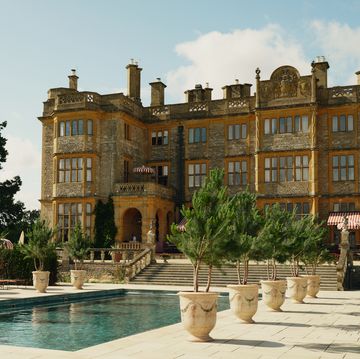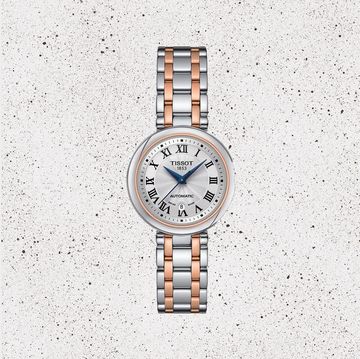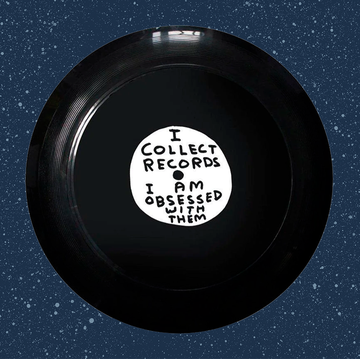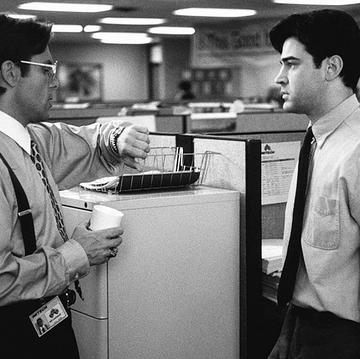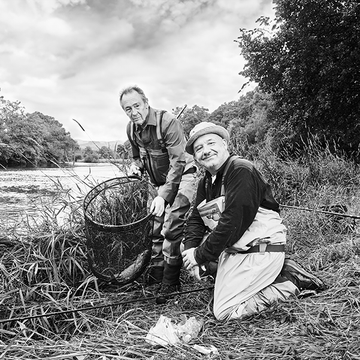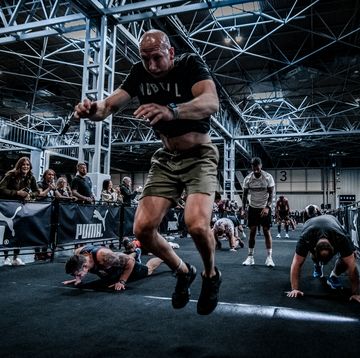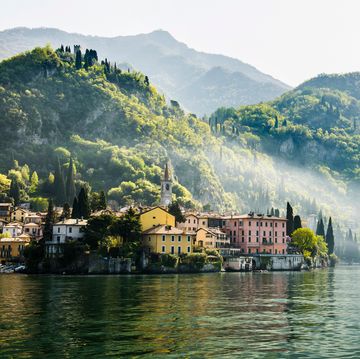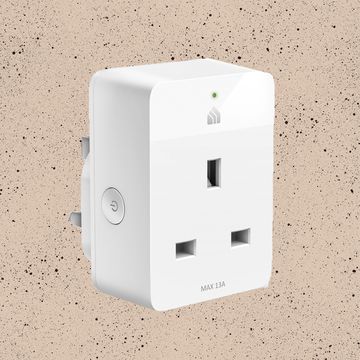The neurologist told me my back looked a lot older than I am. The room was cold, and his desk was surprisingly large, more like the ornate, rich wood of a lawyer's office than what you'd expect in an otherwise stark examination room. "A herniated disc is pressing up against a nerve," he told me, which explains my inability to make it through the day without guzzling ibuprofen or sneaking off in public spaces to perform yoga stretches. "Two other discs show signs of deterioration," he said, gesturing toward the squiggly blur of my MRI, my eyes glazing over in the way they do when someone produces a chart displaying information you'd rather not have.
I'll be 40 years old on Friday, and the failure of one's body to operate is a predictable truth. To be fair, my back hurt at 30 as well. It hurt even more at 20, when a weightlifting mishap took me off my feet for a week, and then had me tottering around the steep hills of my college campus with a cane I managed to convince myself added a certain air of mystery. No matter, I climbed the hills to class. I made it to the pool to swim when running was no longer an option. I gained the 25 pounds anyway. Then, over time, I lost it.
People will ask you how you feel about turning 40. Younger people, mostly, because the ones who arrived before you don't need to be told. I wave it off when I'm asked now. It is nothing, I say. It is not a thing. It's just a number, and besides, I've never had much interest in math.
When you're young, pain seems like a problem that can be solved. In middle age, pain of any kind, physical or emotional, is instead the convergence of a series of inevitabilities. Not a mountain to be crested, but a valley to settle into, a place that may not be as nice as you had imagined, but one where you nonetheless arrange the furniture just so.
I don't remember much about my childhood anymore. Looking at the newspaper clipping I dug out today (above), it seems one plan was to stop biting my nails. "I'd like to stop because it makes them hurt," I said. That, like many things, has not gone according to plan. But there's a story my mother often tells about me as a boy. We came across a dying mouse in the driveway, nearly broken in half, but still struggling for air; I couldn't comprehend the injustice of it. I was reminded of it this week, on a path I usually run along by the Charles River—an activity my doctor has instructed me to avoid—where one of the hundreds of geese that nest and shit and squawk nearby sat motionless in the grass, its head turned inward on its plump body, deathly still. I couldn't be sure if it was suffering or merely resting; the difference is often imperceptible.
When I got back, I called Animal Control to see if there was something that could be done, but they didn't answer. So I called the police instead. People often ask what you might tell your younger self about what to expect, and I guess if I had the chance now I would say that some day, you will call the cops on a bird because you don't know what else to do.
The next day on my run I found the goose in the same spot I had left it. It was standing up now, not going anywhere. The authorities never showed up I suppose, or else they did, and determined the big dumbass was going to make it after all.
People ask me what it feels like to turn 40, and I'd like to be able to tell them, but I don't know yet. I can tell them what it's like to be 39, which is to say, to have lived through the single worst year of my life, a cavalcade of calamities personal and otherwise, many authored by my own callous hand, that feels like it should have been Entirely Too Much, but as of press time hasn't got me yet. Life isn't a journey. It's the act of curating a museum only you can visit, one where the animals and artifacts might come to life when you turn your back. What's worse is when they do not.
It was raining when we gathered by the bay on Cape Cod earlier this year to contend with my father's ashes, the long suffering bastard. About a dozen of us, a collection of ex-wives and far-flung children and a remaining friend or two. We walked down onto the rocks, and I was nervous that my sister would fall into the ocean. Each took turns sharing a fond memory or a goofy story, in the way you do when you're conjuring the humanity of the dead. But I said nothing, my comparative pain placing me lower in the pecking order of grieving than the rest. In the distance, a bridge loomed through the fog, clogged as ever with traffic, with people setting out to someplace else.
I tried to explain to a couple of 20-something dudes at a bar the other night what they could expect from getting older. They had not asked. "You'll have to grow accustomed to eating shit," I said. I was drunk, and I don't even know that I believed what I was saying, but I wanted to momentarily interrupt their hateful innocence. "Behold, the ghost of hipster future," I moaned. They were polite, because you listen to your elders. And then when they're gone, you forget everything they told you.
Being older is merely having read further along in the book, or finished bingeing a season of the series. The people behind you don't want to hear what comes next, and at any rate, even if they did, there isn't much they could do to change things. There are only so many variations on the plot.
The neurologist asked me what kind of writing I do, and I stammered, as I always do, at the answer, trying to make it sound in the vicinity of important, but not so much so that it seemed I thought too much of myself. "I went to the White House the other day," I told him. "Yes, yes, it was quite a thing." He's very good at what he does, this doctor. He performed back surgery on my wife earlier in the year, when she was felled by a sudden immobilizing pain similar to mine. He cut her open and pieced her back together, and she walked away from it intact in the long run. Not the same as she was, mind you, but enough to begin again. There was a bright scar on her lower back that has dulled over the past few months, so it's harder to see, but I know where to find it when I'm reaching over in the dark.
The neurologist brought my attention back to the MRI, dusky and muted on the computer screen. "Let's not do surgery," he said. "Sometimes, over time, these things can heal themselves," he said. The body has a way of absorbing the herniated disc back into the … something or other. I wasn't listening to his advice, because I already knew what I was always going to do anyway.
"Okay," I told him, thankful to be able to put things off, to forestall the uncertainty of decisive action in favor of the familiar. I looked at that image and thought about what it feels like to turn 40. How can a spine be older than the person it belongs to, I thought. Whose bones are these inside of me?




